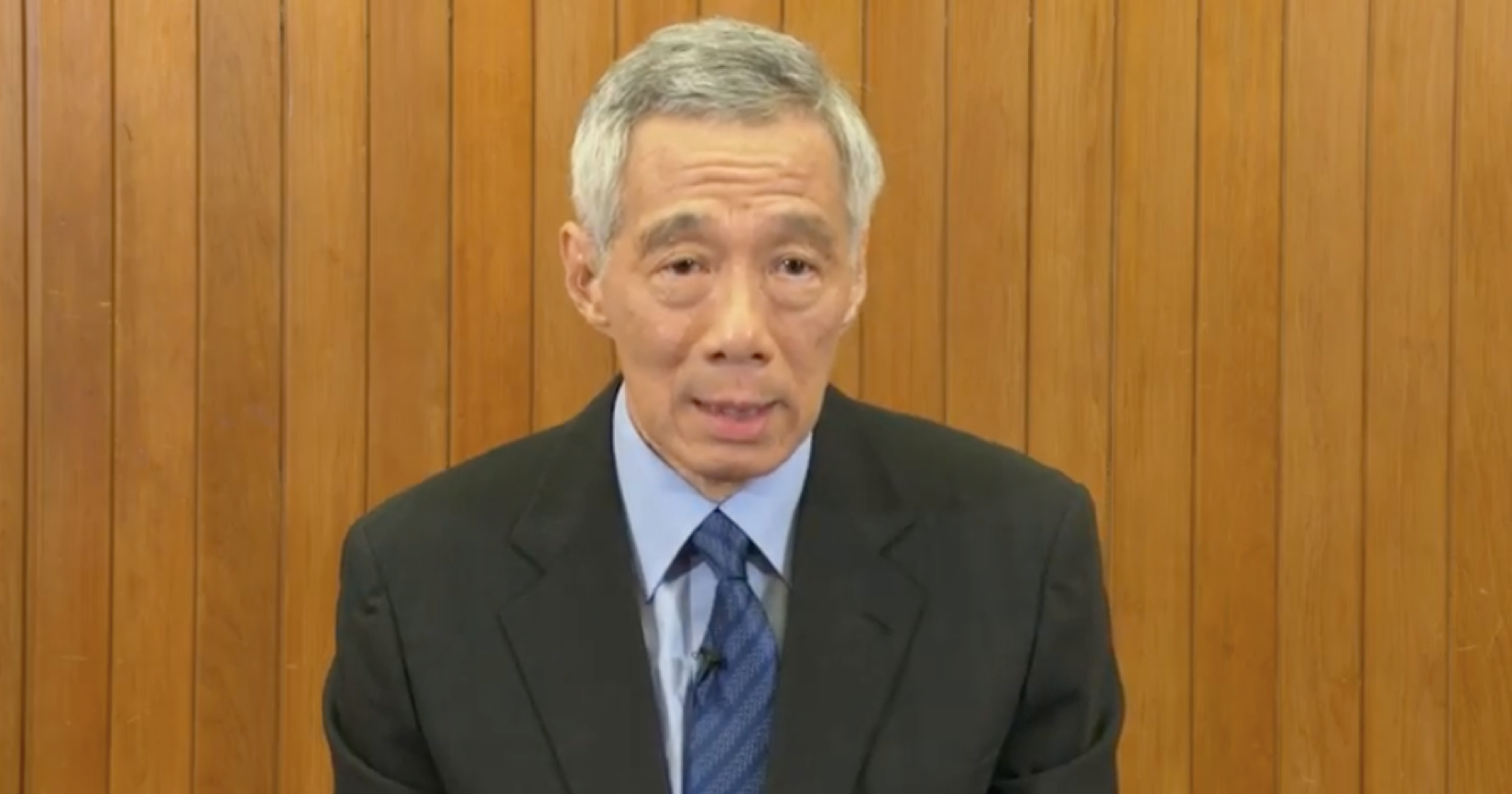Prime Minister Lee Hsien Loong believes that measures related to "flattening the curve" will not last for just a few months, but it could take up to a year or possibly 18 months.
Despite the economic damage this will cause, the alternative is a surge in cases of Covid-19, which will overwhelm the healthcare system.
Caught between Scylla and Charybdis
In an interview with Fareed Zakaria on CNN on Mar. 29 (Singapore time), PM Lee was asked about the options of either waiting for a vaccine, or obtaining "herd immunity".
The latter entails having a majority of the population get infected by Covid-19, recover, and then since they are immune, they no longer spread the disease.
PM Lee pointed out that in order for herd immunity to work, a large number of the population needed to contract Covid-19.
German Chancellor Angela Merkel, who Lee said speaks "very carefully", said that up to 70 per cent of the German population could possibly become infected, although Merkel's statement on March 11 did not explicitly say that this was linked to a herd immunity strategy.
However, PM Lee also pointed the drawbacks in acquiring herd immunity. He stated:
"If we have to go that route all the way, I think it is either going to be very, very painful, because there will be a huge spike and you will have an uncontrolled outbreak as happened in some cities in northern Italy or in China."
This would potentially overwhelm Singapore's healthcare services.
PM Lee noted that while the virus is breaking out in Europe and North America, he also believes that it will also happen in places like India, South America, Africa and Southeast Asia. Said PM Lee:
"By the time it goes around the world, and then finally runs its course, I think that is several years, unless something happens to abort that process."
When asked by Zakaria if "flattening the curve" might take "potentially a year or 18 months of flattening"?
PM Lee concurred.
"That would be my guess. I am not a professional epidemiologist or infectious disease specialist, but I do not see this problem going away in a couple of months. It has spent, taken several months to, more or less, bring under control in China. It is taking off in Europe now, and will take many months to bring under control."
Flattening the curve will impact the economy
The other strategy is to flatten the curve through measures such as travel restrictions and social distancing measures, while waiting for effective treatment or a vaccine. Added PM Lee:
"That is some distance down the road, but many very smart people are working very hard at it. I can only hope and pray that they will make some progress soon."
However, this strategy does not come without cost.
In a doorstop interview on Mar. 27, PM Lee said that the economy during Covid-19 would not be a "V-shaped recovery", in which there is a sharp but brief decline followed by a fast recovery.
It would not even be a "U-shaped recovery", where there is a gradual decline followed by a gradual rise.
Aviation has died, tourism is dead
The impact of the virus on Singapore's economy has been unprecedented.
Entire sectors have gone dark, with PM Lee saying:
"Aviation has died, for example, tourism is dead and all the travel industry which is associated with that – the hotels are in considerable difficulties. So that is an impact which is not going to go away in a hurry."
He explained that the virus has disrupted supply chains across the world. Singapore's production and export capabilities are also affected.
He also mentioned the self-employed and workers in the gig economy, whose opportunities have dried up now that events are cancelled and more people are staying indoors. He added:
"I do not see that coming back until such time as people gain confidence that they have a hold on the virus, that we can resume normal socialising, normal traveling, normal human intercourse. I think that is quite some time down the road."
Will PM Lee rethink his decision to leave politics?
The unprecedented impact of Covid-19 resulted in the government introducing a supplementary budget of over S$48 billion.
It also involved drawing on Singapore's reserves, for only the second time in history.
It contains economic support measures that the government hopes will help to preserve jobs and keep businesses afloat as much as possible.
Zakaria also asked PM Lee that given the situation, if he would decide to postpone his decision to leave politics.
PM Lee replied: "I think this crisis keeps my hands full. Let us just focus on that for now."
Related story:
Top image from MCI.
If you like what you read, follow us on Facebook, Instagram, Twitter and Telegram to get the latest updates.
